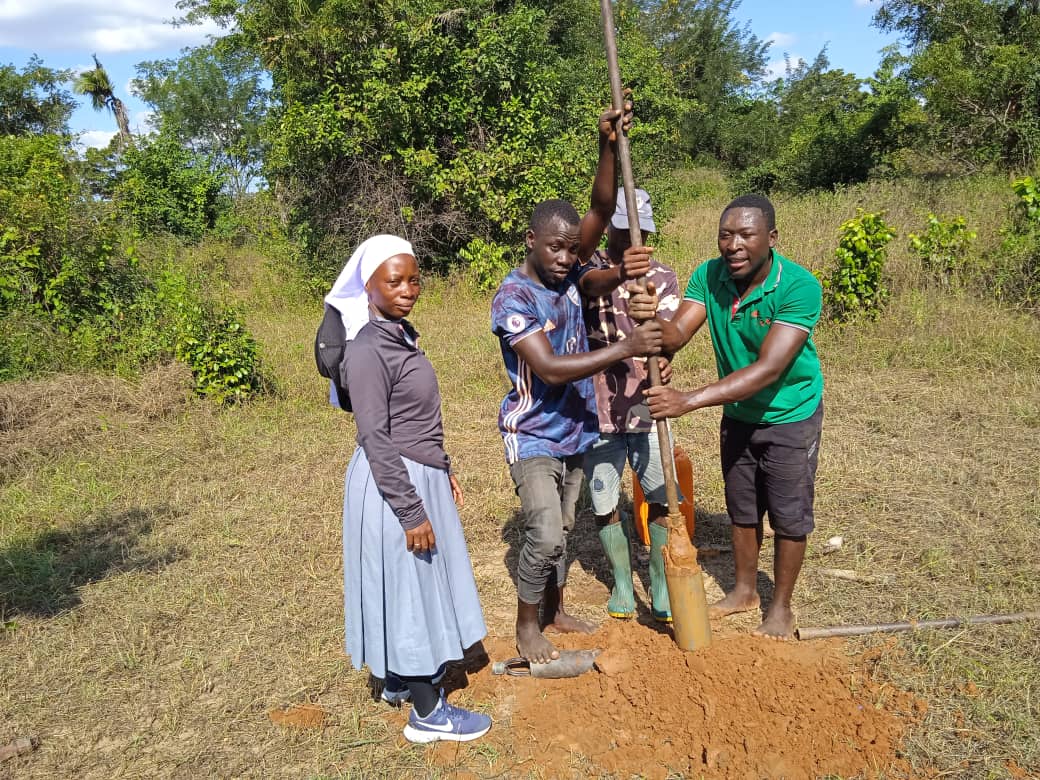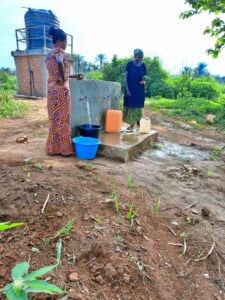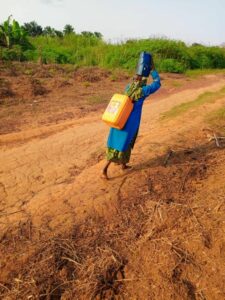
Giving drink to the thirsty – Second Corporal Work of Mercy
The Works of Mercy through the eyes of a biblical scholar
We have chosen to publish each day a reflection on a specific Work of Mercy edited by the biblical scholar Carlo Miglietta. Reflecting on the works in preparation for the meeting organised by Spazio Spadoni to be held in Lucca from 17 to 28 July 2023, which will be attended by friends and volunteers from different parts of the world.
The days that we will spend together are aimed at generating suitable tools to disseminate the Works of Mercy throughout the world. Starting from the places where Spazio Spadoni already operates through the HIC SUM project.
The second corporal Work of Mercy is “to give drink to the thirsty”.

The biblical scholar points out that he who performs this work is similar to:
- God, who in the wilderness for Israel “brought forth water from the rock when they were thirsty” (Ne 9:15. 20); “When they were thirsty, they called on thee, and water was given them from a steep cliff, a remedy against thirst from a hard rock” (Wis 11:4); “They shall not suffer thirst as he leads them through deserts; water from the rock he causes to gush forth for them; he breaketh the rock, the waters gush forth” (Isa 48:21); “They shall suffer neither hunger nor thirst, neither shall the dryness nor the sun afflict them: for he that hath mercy on them shall lead them, he shall bring them to springs of water” (Isa 49:10).
“O all you thirsty people, come to the water; he who has no money, come anyway” (Is 55:1); and to the blessed in the Kingdom he promises: “They shall thirst no more, nor shall the sun beat down on them, nor any kind of heat…To him who thirsts I will give water from the fountain of life free of charge…He who is thirsty, let him come; he who wants, let him draw the water of life free of charge” (Rev 7:16; 21:6; 22:17). - Jesus said: “Whoever drinks of this water will thirst again; but whoever drinks of the water that I shall give him will never thirst again” (Jn 4:1-30); “Whoever believes in me will thirst no more” (Jn 6:35); “Whoever is thirsty, let him come to me and drink who believes in me; as the scripture says, “rivers of living water will flow from his bosom”. This he said referring to the Spirit that believers in him would receive” (Jn 7:37-39). Jesus on the cross, before dying, said: “I thirst…; therefore they put a sponge soaked in vinegar on top of a reed and put it to his mouth” (Jn 19:28-29), fulfilling the scripture that said: “When I was thirsty they gave me vinegar” (Ps 68:22).
- Moses, who quenched the thirst of the daughters of Reuel, Priest of Midian: “He drew water for us and gave drink to the flock” (Ex 2:19); and who in the wilderness “made water gush forth for Israel from the rock and gave drink to the congregation and its livestock” (Num 20:8).
- The Samaritan woman, who quenches Jesus’ thirst “weary from the journey” (Jn 4:6-12).
The biblical scholar also reminds us that he who gives drink to the thirsty listens to the Word of God
Below are some excerpts:
- Eliphaz the Temanite sees it as the cause of Jacob’s suffering that he “did not give the thirsty man a drink” (Ib 22:7).
- “If your enemy thirst, give him water to drink” (Pr 25:21; Rom 12:20).
- “Whoever gives you a cup of water to drink in my name because you are Christ’s, I tell you in truth he will not lose his reward” (Mk 9:41).
The biblical scholar leaves us at the conclusion of this work with a provocation, a question: do we know how to be “fishers of men” (Mk 1:7), identifying those who give drink to the thirsty and proclaiming the beatitude of Mercy that reads “Blessed are the merciful” (Mt 5:7)?
The drama of the water shortage

Access to drinking water is a fundamental human right because it determines human survival. It is a common good that must be guaranteed to all indiscriminately. Pope Francis emphasises this in the Encyclical Laudato si’ , urging us to respect the planet and share resources with our poorer brothers and sisters. Millions of people live with the drama of water shortage. Even today, they die from this and from diseases linked to the use of poor quality water.
This work challenges us not only to a more egalitarian distribution of goods and resources but also to a greater respect and protection of our rivers, lakes, seas and oceans that are part of our ‘common home‘.
Bibliography
![]() Carlo Miglietta – Le Opere di Misericordia
Carlo Miglietta – Le Opere di Misericordia
 Carlo Miglietta – Works of Mercy
Carlo Miglietta – Works of Mercy
 Carlo Miglietta – Oeuvres de miséricorde
Carlo Miglietta – Oeuvres de miséricorde
Read Also
Feeding the hungry – First Corporal Work of Mercy
The Works of Mercy from Brazil to Italy
My Mission As Ambassador Of The Works Of Mercy In Spazio Spadoni
